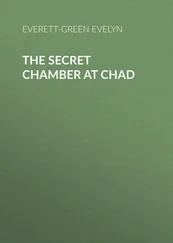Evelyn Everett-Green - Squib and His Friends
Здесь есть возможность читать онлайн «Evelyn Everett-Green - Squib and His Friends» — ознакомительный отрывок электронной книги совершенно бесплатно, а после прочтения отрывка купить полную версию. В некоторых случаях можно слушать аудио, скачать через торрент в формате fb2 и присутствует краткое содержание. Жанр: foreign_antique, foreign_prose, на английском языке. Описание произведения, (предисловие) а так же отзывы посетителей доступны на портале библиотеки ЛибКат.
- Название:Squib and His Friends
- Автор:
- Жанр:
- Год:неизвестен
- ISBN:нет данных
- Рейтинг книги:4 / 5. Голосов: 1
-
Избранное:Добавить в избранное
- Отзывы:
-
Ваша оценка:
- 80
- 1
- 2
- 3
- 4
- 5
Squib and His Friends: краткое содержание, описание и аннотация
Предлагаем к чтению аннотацию, описание, краткое содержание или предисловие (зависит от того, что написал сам автор книги «Squib and His Friends»). Если вы не нашли необходимую информацию о книге — напишите в комментариях, мы постараемся отыскать её.
Squib and His Friends — читать онлайн ознакомительный отрывок
Ниже представлен текст книги, разбитый по страницам. Система сохранения места последней прочитанной страницы, позволяет с удобством читать онлайн бесплатно книгу «Squib and His Friends», без необходимости каждый раз заново искать на чём Вы остановились. Поставьте закладку, и сможете в любой момент перейти на страницу, на которой закончили чтение.
Интервал:
Закладка:
However, to have Czar was much, and Squib was very well content. Czar, he had felt sure, would miss him more than Charger, for he was more with him; and Charger had friends amongst all the stable hands, whilst Czar was regarded with more fear than love in many quarters. It also pleased Squib greatly to be told that on the journey Czar was to be his special care. The party would travel leisurely and easily on account of Lady Mary, and there would be a good many stoppages at various places before they reached their destination. As they would have a carriage to themselves almost invariably, it was probable the dog would be able to share it with them; but at the stations and all such places Squib was instructed to look after the creature, and have him upon his mind, as there would be other things for the gentlemen of the party to think of. Squib felt a great pride and satisfaction in this charge, and confided all the arrangements to Czar, who heard them with great gravity.
Time flew by so quickly that Squib was almost surprised to awake one morning and find that it was really the day of departure. The start was to be made in the morning. They were to go to London first, and lunch there, and then take the train to Folkestone, where they would sleep and be ready for the boat the next day.
Squib had never been to London even, and his sisters, who had once spent a week there, thought it a pity he would not be able to see the Zoological Gardens, and the Tower, and Madame Tussaud’s. But Squib had no room for regret on this score, he was in such a fever to see Switzerland and Lisa again, and the mountains and glaciers and all the wonders of his dreams. He felt very grand, dressed in his new travelling suit of tan-coloured homespun – jacket, knickerbockers, cap, and waistcoat all to match – and strong new stockings of the same shade, with new boots strong enough for mountain scrambling. His sisters had joined together in the purchase of a whistle on a chain, which they thought would be very useful for calling Czar, if he should wander away in a new place; and Squib wore it for the first time this morning, and felt wonderfully grown up in doing so, for the steel chain looked like a watch chain, and he almost felt as if he were wearing a watch all the time.
The good-byes were rather hard to make, for the little girls all cried, and Squib’s own eyes got very moist, and there was a great lump in his throat which half-choked him, whilst everything looked misty and blurred as he went about from one to another, promising to bring all sorts of treasures back with him, and leaving last messages with almost everybody. It made it all the harder because mother was almost crying too as she kissed her little daughters, and left all sorts of last charges with kind Mademoiselle; but Uncle Ronald went about laughing and making jokes, telling his little nieces that they ought to be sent off to India for an indefinite number of years to know what saying good-bye was like; and as for getting up the waterworks because mother was going for a few weeks to Switzerland, why, they were just little geese – he couldn’t call them any better name than that!
Uncle Ronald always made people laugh, and so the good-byes were got over at last between smiles and tears, and then the party found themselves skimming along the road to the station, with Czar running silently along behind, more excited than usual, because he knew quite well that something unwonted was afoot, although perhaps he had not realized quite as clearly as Squib believed that he was on his way to Switzerland.
Squib’s first sight of the sea was at Folkestone, and very wonderful he thought it. There was just enough breeze blowing to make the waves turn over in great green breakers, and come crashing down on the shingle with that strange sound which is like nothing else in the world. Colonel Rutland indulged his little son with a ramble along the beach after tea, and Squib enjoyed it greatly, especially sending Czar into the water after his father’s stick, and his indignant barking at the crested wave, which would not stop for all his barking, nor give back for a second when he flew savagely at it. Other people besides Squib were entertained by the conduct of the great handsome dog, and Squib was very well satisfied with his first day’s travel.
But the next one was far more exciting.
They were actually to cross the water in the steamboat which was lying moored alongside the great stone pier. Uncle Ronald took Squib down to look at it some short time before they were allowed on board, and Squib thought it a very wonderful vessel indeed, although Uncle Ronald laughed and called it a “poor little tub,” which seemed a very disrespectful way of speaking about it, Squib thought.
When he was once safely on board, he made friends with the sailors, and asked them a number of questions, and then went and looked down at the great throbbing engines, and talked to a smutty man who seemed to know a great deal about them, and who explained a great deal to him very good-naturedly – only, unfortunately, Squib did not understand much better at the end than he had done at the beginning. However, the man admired Czar very much, and said it wasn’t often they saw such a fine dog as that in foreign parts, he was sure; and that pleased Squib very much. So he told his new friends all about his home and his sisters and Charger, and how he was going to Switzerland for two months to take care of his mother when his father went up mountains; and altogether the time passed so quickly and pleasantly that he was quite surprised when the train came puffing up, and everybody got busy, and he was taken away by his uncle to watch the new people coming on board.
Mr. and Mrs. Lorimer were amongst these, and Squib soon picked them out. He did not, however, quit his post of vantage till he had seen all the luggage swung on board by the great crane, which he thought very interesting; and then he went to the very back of the boat where he had seen a nice coil of rope lying, and scrambling up on this he found that he was able to make a fine perch for himself, where he could see the water and have a fine view of the boat, and watch the shore as it seemed to slip away astern.
There was rather a stiff breeze blowing when they got into mid-channel, and the vessel rocked and rolled as the big green waves lifted her up and let her down. Squib thought it better than any rocking-chair or rocking-horse he had ever been on, but he noticed that some of the people began to look very queer. A sort of green hue overspread their faces, and then they generally retired from the scene, and he wondered where they all went. Poor Czar, too, grew rather restless and unhappy, and got up from beside Squib, and took a turn or two and then came and lay down again, and looked up pitifully at his little master, as if asking for sympathy. He did not seem able to get comfortable, and Squib wondered what was the matter.
“Oh, Lor’ bless you, little master, he’s only a bit sea-sick, just the same as Christian folks!” said the kindly sailor whose acquaintance Squib had made previously, and who chanced to pass along at that time. “Like enough he’ll just be a bit sick, like the other folks, and then be right again. It’s a queer thing when you come to think of it, sea-sickness. But Lor’ bless you, nine-tenths of the folks as comes aboard in bad weather can’t stand up against it. You don’t seem no worse yourself though, little master.”
“Oh no; I like it. I didn’t know what made them all look so queer. I heard mother saying she was afraid it would be rough crossing, and that she would be ill. I hope she isn’t.”
Poor Czar, however, did not escape, and was very unhappy for a time, and then quite ill; but the passage was quickly made, and once on firm ground again he thought no more of his troubles.
Читать дальшеИнтервал:
Закладка:
Похожие книги на «Squib and His Friends»
Представляем Вашему вниманию похожие книги на «Squib and His Friends» списком для выбора. Мы отобрали схожую по названию и смыслу литературу в надежде предоставить читателям больше вариантов отыскать новые, интересные, ещё непрочитанные произведения.
Обсуждение, отзывы о книге «Squib and His Friends» и просто собственные мнения читателей. Оставьте ваши комментарии, напишите, что Вы думаете о произведении, его смысле или главных героях. Укажите что конкретно понравилось, а что нет, и почему Вы так считаете.












